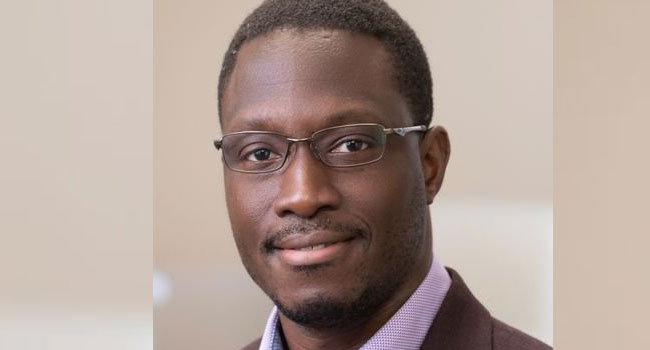US Hails Nigerian Who Helped Develop COVID-19 Vaccine

![]()
The United States Embassy in Nigeria has lauded a Nigerian-born medical doctor, Onyema Ogbuagu for his role in the development of a COVID-19 vaccine in America.
Earlier in the month, US drug manufacturing firm, Pfizer announced that the vaccine has an efficacy rate of more than 90 percent, marking a major breakthrough in the fight against the pandemic.
READ ALSO: No Sinister Plan Behind COVID-19 Vaccine, Says Nigerian-Born Doctor Leading Pfizer Research
“Nigerians contribute to the world in so many ways,” the US Mission in Nigeria tweeted on its handle on Monday. “Our hats off to Dr Onyema Ogbuagbu at Yale who helped develop a COVID-19 vaccine!”
Nigerians contribute to the world in so many ways. Our hats off to Dr. Onyema Ogbuagbu at Yale who helped develop a COVID-19 vaccine! pic.twitter.com/DYFWHlJSFM
— U.S. Mission Nigeria (@USinNigeria) November 23, 2020
Ogbuagu is an Associate Professor of medicine at Yale University. He is one of those leading the research at Pfizer for a COVID-19 vaccine in the United States.
READ ALSO: Trump’s Son Don Jr Tests Positive For COVID-19
In a series on Tweet on his official handle, Monday, the medical expert dispelled some misconceptions about the vaccine, explaining that misinformation about the pandemic may lead to loss of lives.
Ogbuagu’s profile on the website of Yale School of Medicine states that his clinical responsibilities include educating and training medical students, residents, and infectious diseases fellows in various capacities in inpatient and outpatient settings; and through structured course work and other teaching sessions.
For five years now, Ogbuagu has been the Director of the Yale AIDS Program HIV clinical trials program, and a principal investigator on numerous pharmacokinetic, phase 2 and 3 safety and efficacy trials of novel antiviral compounds (HIV).
Most recently, given the alarming rate of new infections among men who have sex with men (MSM), he has focused on HIV prevention trials including being a co-principal investigator on a Yale CIRA funded project, which has supported the formation of a cohort of men who have sex with men, who are at high risk for HIV and are engaged in HIV PrEP services in order to study the impact of substance use on retention in care and adherence to PrEP.


